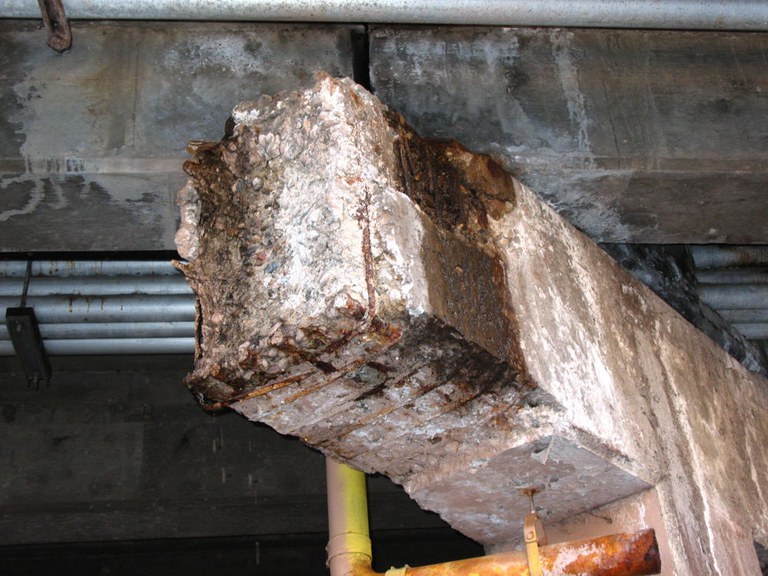Financing Initiatives
Series 2010A Senior Build America Bonds
When the General Assembly created the Bridge Enterprise in Senate Bill 09-108 (also known as FASTER) it also provided the authority to issue revenue bonds. Bonding is used by local and state governments throughout the United States to finance infrastructure construction and rehabilitation. Items typically built or repaired with bond proceeds include roads, schools, hospitals, airports, and other critical public assets.

In December 2010, the Bridge Enterprise issued $300 million in federally subsidized Build America Bonds. Late 2010 was an unusually favorable time for this issuance. Due to the economic recession, construction costs were substantially lower than normal. Further, this timing allowed CDOT to take advantage of expiring Build America Bonds (BABs)—a short-term bond program authorized by the American Recovery and Reinvestment Act.
The decision to issue bonds has costs and benefits. The costs for the 2010 bond program are represented by interest payments ($272.7 million over thirty years). The Enterprise will pay $11.7 million annually in interest between FY 2011-12 and FY 2024-25, at which point the Enterprise will begin to repay principal, causing interest payments between FY 2025-26 and FY 2040-41 to decrease gradually to $483,000 in FY 2040-41. Despite these costs, the benefits of the 2010 bond program are significant. These benefits include:
Accelerated Bridge Repair and Replacement
The primary purpose for the creation of the Bridge Enterprise under FASTER was to quickly eliminate critical safety hazards to the traveling public. Bonding allows the Bridge Enterprise program to accelerate the completion of multiple bridges in a compressed amount of time—with the priority being to address the worst-rated bridges first. The Bridge Enterprise estimated that it would be able to repair or replace 40-50 bridges by the end of 2013. Without bonding, work would have progressed more slowly as it would be limited to the funding available from the yearly collection of bridge safety registration fees. This pay-as-you-go approach could take 2-3 times longer.
Help Stimulating the Colorado Economy while Saving Time and Money
Another goal of the FASTER legislation is to "stimulate economic recovery in the short and medium term.” The Colorado Bridge Enterprise bond program introduced more dollars into the economy when they were needed most. In fiscal year 2012 alone, the program spent approximately $140 million in construction-related costs—translating into more jobs and more work for the private sector here in Colorado.
Repairing and replacing more bridges sooner rather than later allowed the Bridge Enterprise to take advantage of historically low construction costs from 2011-2013 (the period of highest construction activity), resulting in significant cost savings. Further, this approach meant lower maintenance costs in the future and avoiding costs and delays to motorists and businesses associated with closing or weight-restricting poor bridges.
Results of the 2010 Bond Program
The total amount of proceeds that were available for projects at the time the bond was issued was $298.14 million, after issuance fees. At the beginning of 2015 the bond program concluded with $307.95 million in total expenditures. The additional $9.81 million represents interest earned on the bond proceeds while the program was in progress. The 2010 Bond program resulted in the repair or replacement of 89 bridges throughout the State of Colorado, which significantly exceeded the initial estimate of 40-50 bridges.
Series 2019A Senior Refunding Bonds
In August 2019, the BE Board of Directors approved a resolution to refund $42.8 million in Series 2010A “Par Call” Bonds prior to maturity to capitalize on a favorable interest rate environment and reduce the Enterprise’s debt service burden. The refunding transaction closed in December 2019 and resulted in approximately $5 million in net present value savings on debt service payments.
Senior Infrastructure Revenue Bonds

In April 2024, BTE closed the $150 million Infrastructure Revenue Bond Series 2024A transaction, which was the first of three contemplated financings. This transaction generated $163.76 million in project funds (after issuance fees) to support CDOT with the funding and delivery of several key 10-Year Plan projects and the US 50 Blue Mesa Bridges Emergency Response project. 10-Year Plan projects funded with Infrastructure Revenue Bond proceeds include I-70 West: Floyd Hill, I-70 Vail Pass Safety and Operations Improvement Project, and I-25 through Pueblo New Freeway; Advancing Transportation Safety
In May 2025, BTE closed the $218.7 million Infrastructure Revenue Bond Series 2025A transaction, which is the second of three contemplated financings. This transaction generated $225 million in project funds (after issuance fees) to support CDOT with the funding and delivery of the 10-Year Plan, specifically the I-70 West: Floyd Hill Project. Efforts are ongoing to evaluate the Enterprise’s capacity for the one remaining financing planned for late calendar year 2026 or early 2027.
Series 2024B Senior Refunding Bonds
While planning for future Infrastructure Revenue Bond issuances, BTE identified an opportunity to address an existing debt service bottleneck through the refunding of its outstanding Series 2010A Build America Bonds. Prior to the refunding, BTE’s overall debt service increased annually until fiscal year 2041 due to the Central 70 financing, which has availability payments that increase annually through fiscal year 2052. By refunding BTE’s outstanding Series 2010A Build America Bonds and flattening BTE’s debt service profile, the Enterprise now benefits from increased structuring flexibility and capacity for the financings needed to deliver the 10-Year Plan, increased near-term pay-as-you-go program revenues for safety critical projects through fiscal year 2041, and programmatic risk reduction. In addition to these benefits, the refunding resulted in approximately $1.5 million in net present value savings on debt service payments.
